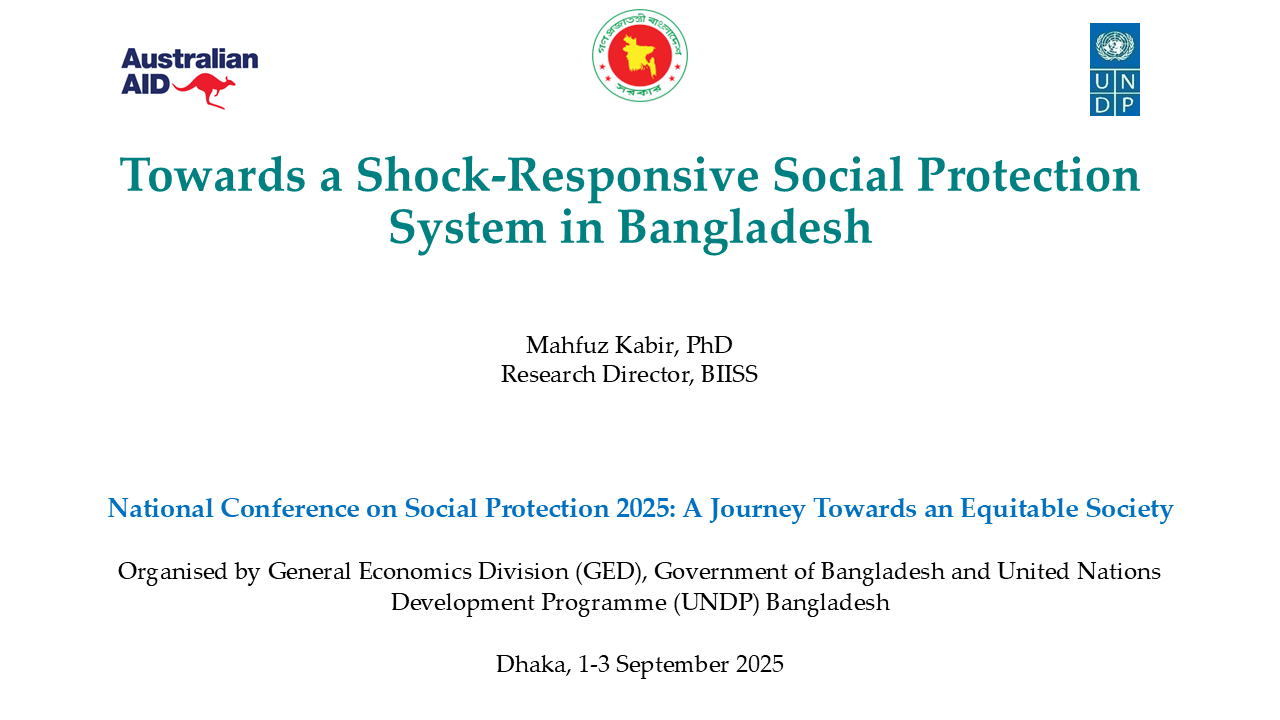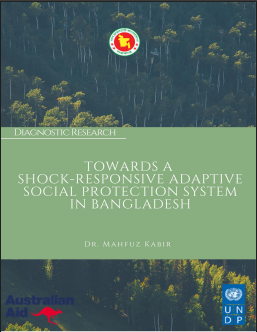Presenter: Dr. Mahfuz Kabir, Director (Research), BIISS
Bangladesh’s increasing exposure to recurrent and severe climate-induced shocks, including floods, cyclones, and droughts, underscores the pressing need for an adaptive and shock-responsive social protection framework. The 2022 Sylhet flash floods and Cyclone Remal in 2024 caused extensive displacement, damage to infrastructure and livelihoods, and deterioration in education, health, and social services. These events highlighted the inadequacy of conventional social protection systems that remain largely static, fragmented, and insufficiently responsive to large-scale, rapid-onset disasters. This chapter proposes the establishment of a Shock-Responsive Adaptive Social Protection (SRASP) system, aimed at absorbing the immediate impacts of shocks while building the long-term resilience of vulnerable households.
The proposed SRASP framework consists of seven interlinked steps: identifying and mapping shocks; assessing vulnerability, damage, and loss; redesigning and modifying programmes; financing and implementing interventions; monitoring and evaluation; adapting and scaling initiatives; and strengthening coordination and collaboration. The framework places particular emphasis on cross-cutting issues such as gender, disability, poverty, and geographic disparities. While Bangladesh already implements programmes such as agricultural subsidies and disaster mitigation funds, these require substantial redesign to optimize efficiency, inclusivity, and coverage. Importantly, the integration of climate resilience into national policy frameworks – such as the NSSS (2015), 8FYP (2020–2025), PP2041, and NPDM (2021–2025); provides a solid foundation for advancing SRASP.
The chapter concludes that an effective SRASP system, supported by robust vulnerability assessments, sustainable financing, and multi-stakeholder collaboration, is vital to reducing welfare erosion, protecting development gains, and ensuring inclusive, climate-resilient growth in Bangladesh.





